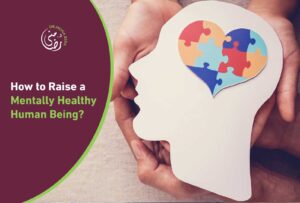Psychological Alienation
Our world today has become full of contradictions and rapid developments brought about by the information technology revolution and globalization, so human life is no longer a fixed system and man has become constantly changing, in addition to conflicts, disagreements, and wars that have led to a sense of inconvenience and loss of security. So man finds himself living in a world unable to secure his needs achieving his desires and dreams, and he has many psychological problems such as anxiety, stress, and depression; He began, little by little, to withdraw from the activities of society, secluding himself at a distance; Because he found himself unable to deal with these changes, and here he enters into what is called psychological alienation.
What is psychological alienation?
Psychological alienation is a widespread phenomenon in modern societies, represented by the individual’s feeling of isolation and separation from society and others, and not belonging to a particular community, and it can occur as a result of certain circumstances such as a sudden change in society, life or separation from loved ones or friends. Psychological alienation may lead to psychological problems such as depression, anxiety, and stress. Some scholars believe that the feeling of psychological alienation comes as a result of psychological factors related to the growth of the individual, and other factors related to the society in which he lives, which makes him unable to overcome the problems of life.
Causes of psychological alienation
There are many reasons that lead to psychological alienation, the most important of which are:
First: psychological reasons:
1. Because of the conflict and contradiction between motives and desires, and between needs that cannot be satisfied at one time, which leads to psychological stress and anxiety.
2. The individual feels frustrated when he finds many obstacles on his way to achieving what he wants and suffers from feelings of helplessness and failure, which results in a feeling of psychological alienation.
3. The wars taking place in the world and exposing the individual to psychological trauma or sudden crises.
4. The psychological pressures that the individual is exposed to in his pursuit of perfection and idealism.
5. Deprivation of the feeling of love and warmth from the family.
Second: social reasons:
1. Improper methods of socialization, and the disorders that afflict people because of them.
2. The loss of the moral and social values that govern society.
3. The social pressures that the individual is constantly exposed to
4. Poor professional compatibility with the individual’s tendencies and desires.
5. Suffering from prevailing intolerance and social instability.
6. Lack of social interaction between members of the community.
Third: economic reasons:
1. The financial difficulties faced by the individual and the overall poor economic conditions.
2. The emergence of a large number of high-income earners at the expense of low-income earners has led to a difference in the standard of living and life, resulting in the loss of power and the means by which greater control over nature can be achieved, resulting in the absence of limited-income earners in the same society.
Treatment of psychological alienation
Several measures can be taken to treat psychological alienation, including:
1. Determine the reason for feeling detached from reality.
2. Recognizing the methods that make the individual feel more connected with his world and his feelings.
3. Learn coping strategies to deal with stressful situations and times of extreme stress.
4. Addressing the feelings associated with past trauma.
5. Addressing other mental health problems, such as anxiety or depression.
6. Consult a specialized psychiatrist to help overcome this problem scientifically.
7. Medicines can be treated after consulting a specialist. Medications may be prescribed for other ailments associated with this disorder.
Contact Dr. Mona Reda, Consultant in Mental Health and Marital Relations.









